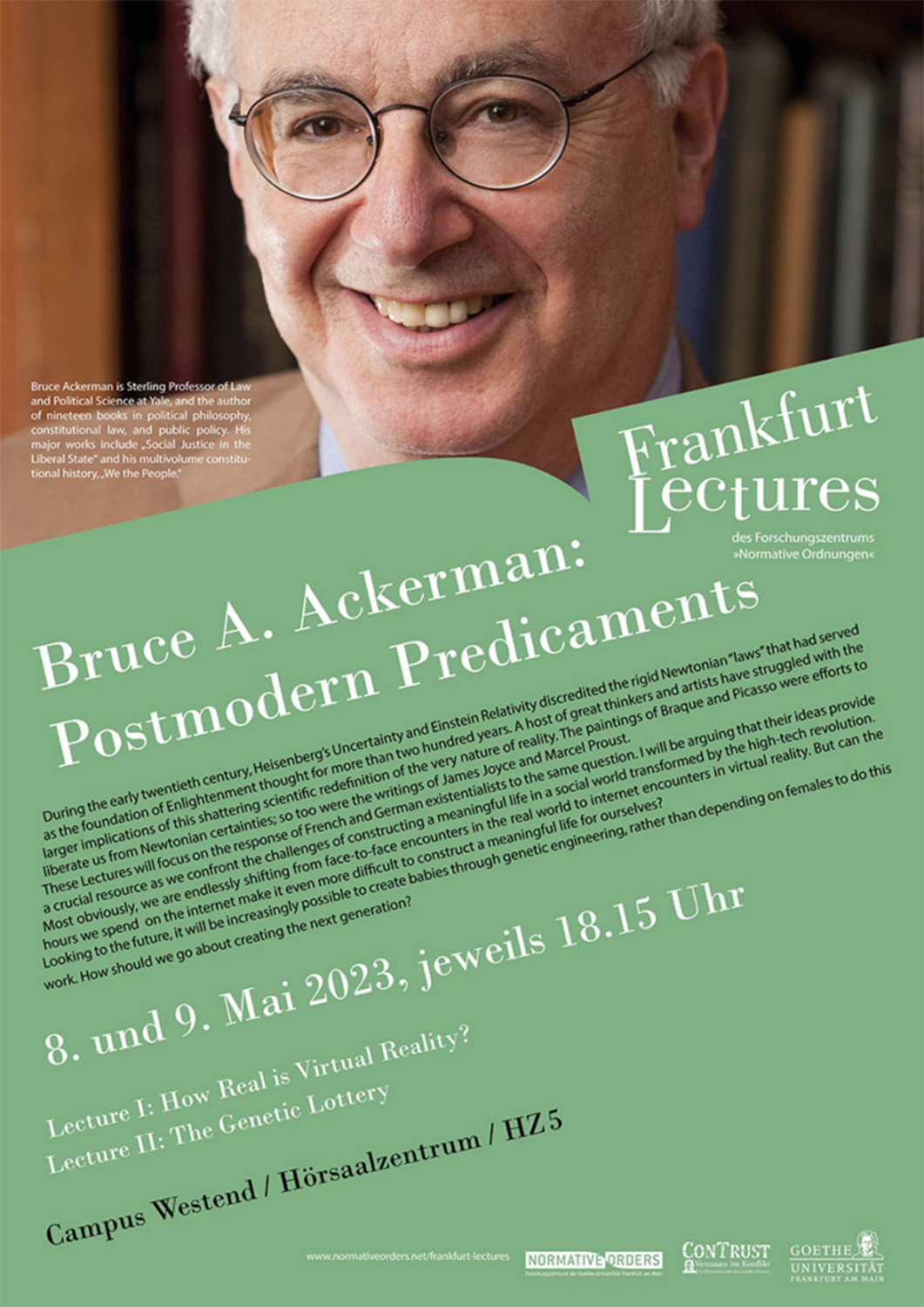The dilemma of technological postmodernism – Bruce Ackerman speaks at the Frankfurt Lectures
At the beginning of the 20th century, physics was in turmoil. Heisenberg’s uncertainty principle and Einstein’s theory of relativity ushered in a new era – among other things by calling into question Newton’s “laws”, which had been the basis of Enlightenment thinking. A large number of thinkers and artists have grappled with the far-reaching consequences of this scientific redefinition of reality – including the French and German existentialists. What do they teach us about our time, a time of profound uncertainty?
This year’s Frankfurt Lectures by the renowned American philosopher and constitutional lawyer Bruce Ackerman will focus on a critical diagnosis of the present in the lectures “Postmodern Predicaments” on May 8 and 9, both at 6:15 pm in the Hörsaalzentrum, HZ5, on the Westend campus of Goethe University.
In two individual lectures, “How Real is Virtual Reality?” (on May 8) and “The Genetic Lottery” (on May 9), Sterling Professor of Law and Political Science at Yale University Ackerman discusses the ideas of the existentialists as a crucial resource in dealing with current challenges: How can a meaningful life be shaped in a social world transformed by the high-tech revolution?
The lectures are based on Ackerman’s forthcoming book “The Post-Modern Predicament” (Yale University Press). The book is about how people can take control of their lives in the so-called “brave new world” of the twenty-first century. Ackerman assumes that Simone de Beauvoir, Jean-Paul Sartre and other thinkers of the 20th century can contribute to understanding the challenges to the foundations of a liberal-democratic society.
Bruce Ackerman is Sterling Professor of Law and Political Science at Yale University and the author of numerous books in the fields of political philosophy, constitutional law and public law. His most important works include “Social Justice in the Liberal State” and the multi-volume constitutional history “We the People” as well as “The Stakeholder Society”. Ackerman is also a “Commandeur of the Ordre national du Mérite” of the French Republic and a Fellow of the American Academy of Arts and Sciences. The American Philosophical Society has honored him with the Henry Phillips Prize for Lifetime Achievement in Jurisprudence.


